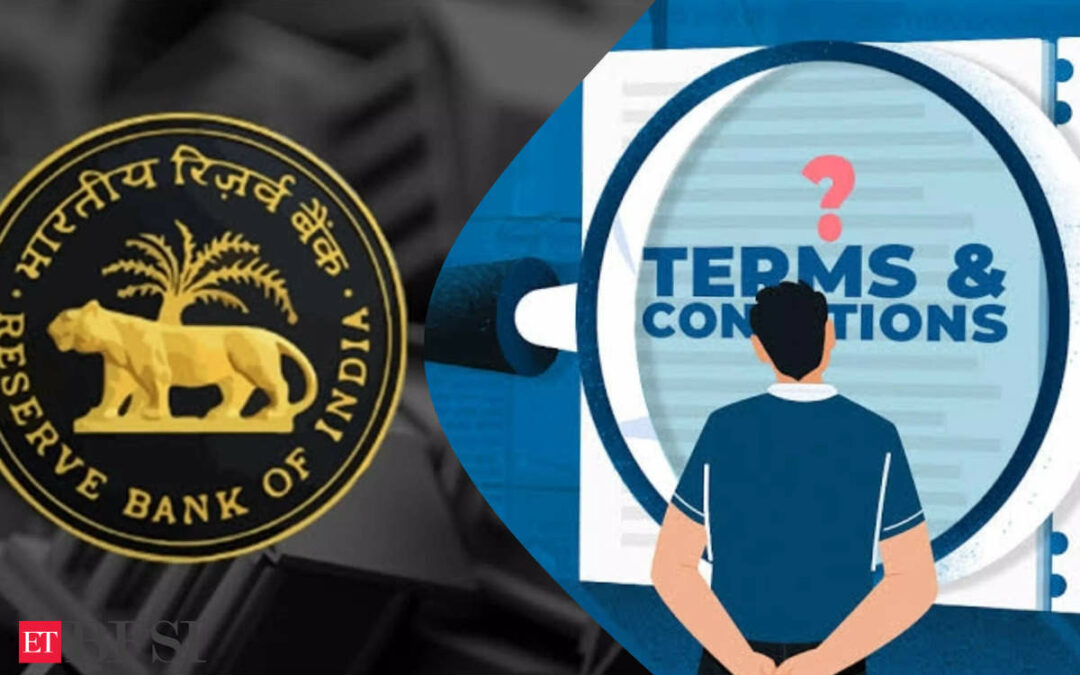In order to assist borrowers in navigating the complexities of loan terms and conditions while upholding regulatory standards, the Reserve Bank of India (RBI) has asked all lenders to provide key fact statements (KFS), with effect from 01 October, 2024.
It is an important step towards protecting both retail & MSME borrowers by providing clear language and comprehensive details on loan agreements including all the charges from the entity and third-party service providers, ensuring full disclosure to the borrowers.
According to industry experts, standardizing procedures across regulated entities (REs) and mandating compliance will propel uniformity and clarity in loan contracts.
“The KFS shall be written in a language understood by such borrowers. Contents of KFS shall be explained to the borrower, and an acknowledgment shall be obtained that he/she has understood the same,” RBI said in the notification.
Through KFS, borrowers will be in a position to make more informed choices, thereby contributing to a more equitable and trustworthy lending environment, Shikhar Aggarwal, Chairman of BLS E-Services said.
“The move underscores the importance of informed decision-making, highlighting the true costs, terms, conditions, and foreclosure charges associated with loans. With KFS in place, borrowers will be empowered with essential information, ensuring they are fully aware of their financial commitments,” he added.
Currently, KFS is specifically mandated with respect to loans by scheduled commercial banks to individual borrowers, digital lending by REs, microfinance loans and loans by NBFCs for all retail and MSMEs.
Access to formal credit a significant challenge
While the country’s MSME sector has almost doubled in strength, its contribution to the Indian economy has remained subpar, and it is no secret that a significant hindrance in the growth story is the lack of access to formal credit.
Access to formal credit has been a significant challenge for the MSME sector, and these guidelines are expected to stimulate more credit demand from MSME borrowers, Prashant Muddu, CEO & MD, Jocata (subsidiary of Billdesk) said.
He believes that this transparency, combined with the potential of alternative data, will enable regulated entities (REs) to extend credit to the priority sector and enhance financial inclusion within the ecosystem.
According to an EY report, compared to global averages—the MSME sector in India lags behind when it comes to formal credit penetration. To put things in perspective, MSMEs are currently battling monumental challenges with a credit gap of $530 Bn. Other reports have also suggested that among the 64 million MSMEs in the country, only about 14% have access to credit.
Inclusion of APRs and repayment schedules
According to the RBI notification, the KFS will also include a computation sheet of the annual percentage rate (APR) and the amortisation schedule of the loan over the tenor. APR will consist of all charges levied by the regulated entities (REs).
As per RBI’s notification, charges recovered from the borrowers by the REs on behalf of third-party service-providers on an actual basis, such as insurance charges and legal charges, should also form part of the APR and be disclosed separately.
“Inclusion of annual percentage rate (APR) calculations and repayment schedules within the KFS facilitates informed decision-making for borrowers. As per the guidelines, REs cannot charge any fees or charges that are not stated in the KFS without the explicit consent of the borrower, further protecting them from unexpected financial burdens,” Muddu pointed out.
This proactive measure by the RBI showcases its focus on safeguarding millions of borrowers nationwide and promoting a more customer-centric and responsible lending ecosystem, he added.











